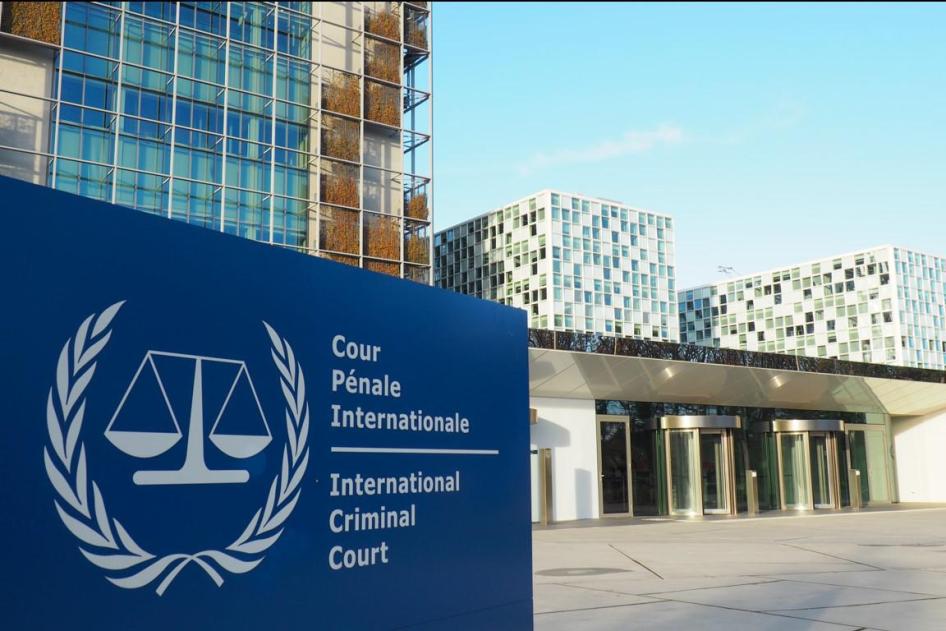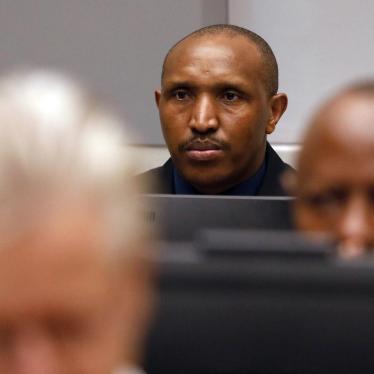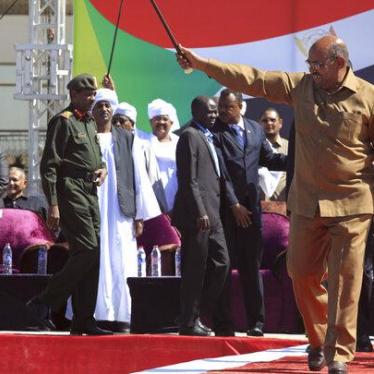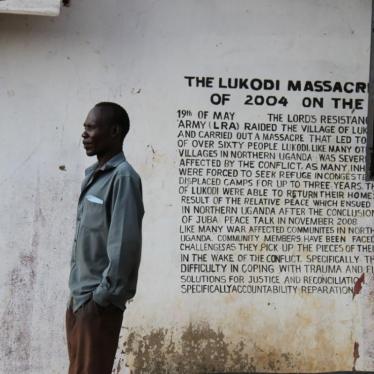(New York) – Member countries of the International Criminal Court (ICC) should renew their commitment on International Justice Day, July 17, 2019, to defend and strengthen this important justice institution, Human Right Watch said today. On July 17, 1998, 120 countries adopted the Rome Statute creating the ICC.
“Twenty-one years after its creation, the International Criminal Court is needed more than its founders ever imagined,” said Richard Dicker, international justice director at Human Rights Watch. “Despite the challenges the court is facing, its mandate and founding aspirations remain vitally important.”
The anniversary is occurring during the meeting of the United Nations High-level Political Forum on Sustainable Development in New York. Sustainable Development Goal 16 (SDG 16) on peace, justice, and strong institutions, is one of the goals under review at this year’s session. SDG 16 highlights the strong link between sustainable development and the rule of law. The court, as the centerpiece of the Rome Statute system’s evolving network of accountability for atrocity crimes, can contribute to reaching SDG 16 by prosecuting the world’s worst crimes, promoting the rule of law, and providing access to justice for victims.
In today’s difficult international landscape, the ICC is a fragile, yet crucial component of the rules-based global order. It is currently facing serious challenges resulting from its own missteps, as well as external threats to its independence. In the past year, the court’s performance shortcomings have become evident, underscoring the need for changes in policy and practice, Human Rights Watch said.
On January 15, ICC trial judges acquitted former Ivorian president Laurent Gbagbo, finding that the prosecution had not presented sufficient evidence for the case to proceed. While acquittal is a legitimate and necessary outcome if the prosecution’s evidence does not establish a suspect’s guilt beyond reasonable doubt, the written reasons were only filed on July 16, six months after the oral decision.
On April 12, a pretrial chamber unanimously rejected the request by the prosecutor to investigate serious crimes committed during the armed conflict in Afghanistan since May 2003. The judges found that such an investigation would not be in “the interest of justice” because “the current circumstances of the situation in Afghanistan are such as to make the prospects for a successful investigation and prosecution extremely limited.” This problematic interpretation of “interest of justice” injected political and practical considerations into a judicial decision.
These decisions and other recent developments have highlighted shortcomings at the court that also include the pace of judicial proceedings, management of victim expectations, lack of cooperation, and inadequate resources. Moreover, with preliminary examinations ongoing in 10 countries and investigations underway in 10 more, the prosecutor’s docket far outstrips the reach of current and foreseeable staff capacity.
These issues need to be addressed forthrightly rather than backing away from the court’s mission. An appropriate step toward meaningful change in the court’s policy and practice would be the creation of an independent expert group tasked with assessing a select number of issues confronting the court, Human Rights Watch said.
Other international and hybrid tribunals have undertaken similar independent expert assessments, namely the International Criminal Tribunal for the former Yugoslavia and the International Criminal Tribunal for Rwanda, as well as the Special Court for Sierra Leone.
At the ICC Assembly of States Parties session in late 2020, there will be significant changes in court leadership, including the election of a new prosecutor and six new judges. An independent expert assessment would provide an important basis to inform these elections while also providing a set of recommendations to guide the incoming prosecutor and judges, Human Rights Watch said.
The court is also facing serious external challenges. Hostile non-member states are seeking to obstruct ICC investigations and weaken its independence.
Under the Trump administration the US government launched an unprecedented attack against the ICC. On March 15, US Secretary of State Michael Pompeo announced that the US would impose visa bans on ICC officials involved in the court’s potential investigation of US citizens for alleged crimes in Afghanistan. He indicated the same policy may be used to deter ICC efforts to investigate nationals of allied countries, including Israelis. In early April, the US revoked the ICC prosecutor’s visa.
Given the prosecutor’s request to appeal the decision that rejected opening an investigation in Afghanistan, as well as the ongoing preliminary examination in Palestine, no one should expect changes in the US administration’s approach toward the court. It is critical for ICC member states to push back against Washington’s pressure to blunt the threat to judicial independence and any chilling effect on the court’s work, Human Rights Watch said.
“Change at the court is needed because the values underlying the Rome Statute system far exceed in importance the ICC’s performance shortcomings,” Dicker said. “Court officials, ICC member states, and civil society groups need to meet the challenges head on by strengthening ICC practice and providing much more robust state support.”









